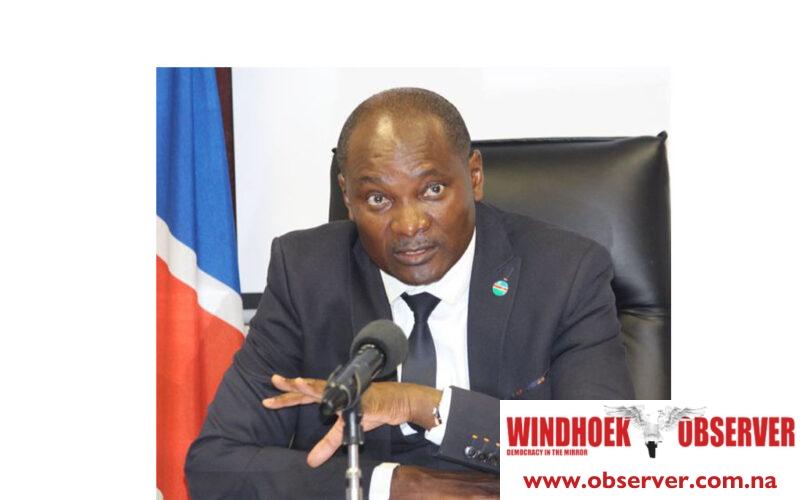Niël Terblanché
Namibia has announced its ambitious plan to become a leading hub for renewable energy innovation in a significant move towards environmental sustainability and economic resilience.
While addressing the High-Level Segment of the Sixth United Nations Environmental Assembly in Nairobi, Pohamba Shifeta, the Minister of Environment, Forestry and Tourism, outlined Namibia’s vision for a future where economic growth and environmental preservation go hand in hand.
He told delegates that Namibia is facing serious environmental threats and that the country is at a critical juncture.
Shifeta emphasized the urgency of addressing the triple planetary crisis of climate change, biodiversity loss, and pollution, which poses a significant risk to ecosystems and societies worldwide.
“With a strategic focus on renewable energy, Namibia is poised to drive green industrialization across the continent, creating jobs, fostering economic development, and ensuring energy access for all,” he said
According to the minister, his initiative is not just about mitigating the effects of environmental degradation but is a proactive measure to harness the power of sustainable technologies for the betterment of society.
The minister’s address highlighted the profound impacts of environmental degradation experienced across Namibia.
He said the country faces a myriad of challenges, including prolonged droughts, erratic rainfall, and extreme weather events that threaten livelihoods and exacerbate socio-economic disparities.
“Biodiversity loss and pollution remain significant concerns, with the government taking decisive steps to ban certain plastic products and introduce measures to protect its natural parks,” he said.
Recognizing the interconnectedness of these issues, Shifeta called for increased international cooperation and a collective response to the environmental crises.
According to the minister, the country has initiated dialogues and consultations with stakeholders, leading to a consensus on crucial interventions such as the plastic ban.
He advocated for legally binding instruments dedicated to drought under the United Nations Convention to Combat Desertification (UNCCD) while also stressing the need for global support and resources to build resilience and manage drought effectively.
Shifeta’s call to action at the UNEA-6 stresses the importance of mobilizing financial resources, technology transfer, and capacity-building support to empower communities and countries at the forefront of environmental degradation.
He stated that Namibia’s commitment to multilateralism, international cooperation, and the integration of sustainability, equity, and resilience into decision-making processes sets a precedent for how nations can work together to overcome environmental challenges.
According to Shifeta, the initiative not only positions Namibia as a key player in the renewable energy sector but also as a vital partner in the global effort to preserve our planet for future generations.




